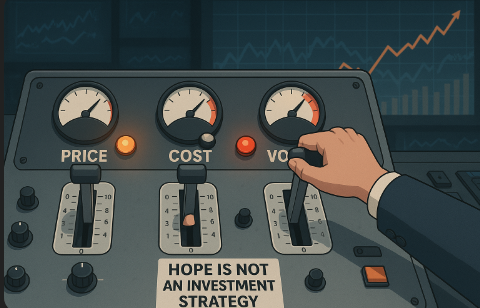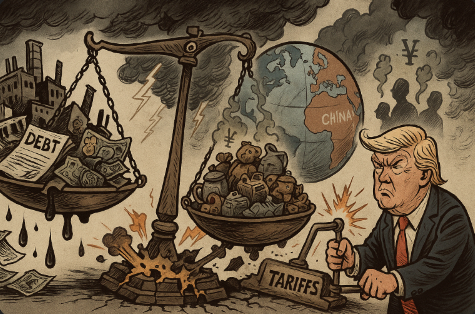
You might have heard the tale about the fund manager with a quirky hiring practice. Each time he needed a new analyst, he’d begin by taking half the resumes and — without even a glance — tossing them straight in the bin.
His rationale? “I don’t hire unlucky people.”
Now, while this story is almost certainly apocryphal, there’s a twisted sort of logic to it. And it underscores a point we often sidestep: luck plays a big role in investing success, whether we like to admit it or not.
So it raises an interesting question: can you make your own luck?
Psychologist Richard Wiseman, author of The Luck Factor, suggests the answer is yes. His research shows that “luck” often results from behaviors and mindsets, not just random chance. Sure, we all face the universe’s chaotic whims, but those with a certain perspective can tip the odds in their favor, however subtly.
Take one of Wiseman’s studies. He scattered money along a hallway and invited participants to walk through it on their way to an interview room. “Lucky” people — those who considered themselves fortunate in life — were significantly more likely to notice the money. The unlucky ones tended to stroll right past it.
In another experiment, participants were asked to count the number of photos in a newspaper. Unbeknownst to them, a large message halfway through read: “Stop counting — there are 43 photographs in this newspaper.” Those who thought of themselves as lucky were far more likely to spot the message and save themselves the hassle.
Interestingly, Zappos — now part of Amazon and once famous for its unconventional culture — used a similar concept in hiring. They’d ask candidates, “On a scale from 1 to 10, how lucky are you in life?” Those who rated themselves as lucky were preferred. And Wiseman’s findings help explain why: people who view themselves as lucky tend to be more open to opportunities, trust their intuition, display optimism, and bounce back quickly from setbacks.
In investing, that mindset is gold.
So how do you position yourself to be “lucky” in the market? Here are a few strategies:
Stay Curious and Open-Minded: Like Wiseman’s “lucky” participants, avoid tunnel vision. Approach investing with curiosity, looking beyond the obvious. The market is full of hidden headlines waiting for those who spot them.
Position for Opportunity: Keep your strategy flexible. Rather than sticking rigidly to a single plan, be ready to pivot if a great opportunity appears. Investing really does reward flexibility.
Take Calculated Risks: While caution has its place, big returns often come from bold but well-researched moves. Like the fund manager’s resume trick, sometimes it’s smart to filter aggressively and trust in the value of what’s left. Don’t be afraid to jump on an opportunity others overlook.
Cultivate Optimism and Resilience: Wiseman’s research suggests that lucky people have a positive outlook and a knack for bouncing back. In investing, each loss or missed opportunity is a chance to learn and refine your approach. A little optimism and resilience can help you keep moving forward, even through downturns.
While luck will always have an element of the unpredictable, we can influence our relationship with it. Much of what we call “luck” stems from awareness, openness, and the readiness to seize opportunities when they arise. In investing, making your own luck means adopting a mindset that’s curious, adaptable, and resilient.
At the end of the day, as Seneca once observed, luck is what happens when preparation meets opportunity.
Strawman is Australia’s premier online investment club.
Members share research & recommendations on ASX-listed stocks by managing Virtual Portfolios and building Company Reports. By ranking content according to performance and community endorsement, Strawman provides accountable and peer-reviewed investment insights.
Disclaimer– Strawman is not a broker and you cannot purchase shares through the platform. All trades on Strawman use play money and are intended only as a tool to gain experience and have fun. No content on Strawman should be considered an inducement to to buy or sell real world financial securities, and you should seek professional advice before making any investment decisions.
© 2024 Strawman Pty Ltd. All rights reserved.







